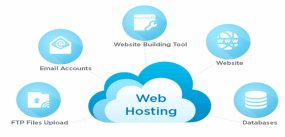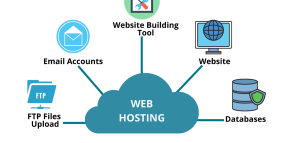
In the ever-evolving digital landscape, web hosting security is paramount. As cyber threats advance, so must our defenses. This comprehensive guide delves into the intricacies of next-gen security measures in the realm of web hosting basics.
Fortifying the Perimeter: An Overview of Web Hosting Security
Understanding the fundamentals of web hosting security is the first step toward safeguarding your digital assets. Explore the layers of defense that constitute a robust security strategy.
Encryption: The Sentinel of Data Confidentiality
Delve into the world of encryption, the unsung hero of data protection. Uncover how encryption algorithms create an impenetrable shield around sensitive information.
Two-Factor Authentication (2FA): Adding an Extra Layer of Armor
Explore the significance of 2FA in thwarting unauthorized access. Learn how this simple yet effective measure enhances user authentication.
Firewalls: Guardians of the Digital Gateway
Discover the role of firewalls in the digital realm. From packet filtering to stateful inspection, explore how firewalls stand as the first line of defense against cyber threats.
Intrusion Detection Systems (IDS): Vigilant Watchdogs in Cyberspace
Unravel the mysteries of IDS and how these vigilant systems detect and respond to potential threats in real-time.
Web Application Firewalls (WAF): Safeguarding Your Online Presence
Dive into the specifics of WAF and how these specialized firewalls protect web applications from various cyber threats.
DDoS Mitigation: Defending Against Onslaughts
Understand the ins and outs of DDoS attacks and explore strategies for effective mitigation to ensure uninterrupted web hosting services.
Regular Audits and Penetration Testing: Strengthening the Defenses
Learn about the importance of regular audits and penetration testing in identifying vulnerabilities and fortifying the security posture of web hosting infrastructure.
Compliance Standards: Navigating the Regulatory Landscape
Explore the compliance standards that govern web hosting security. Understand how adhering to these standards can enhance overall cybersecurity.
User Education: Building a Human Firewall
Highlight the significance of educating users on cybersecurity best practices. Empower individuals to become the first line of defense against social engineering attacks.
Final Words
In the dynamic landscape of web hosting security, staying ahead is not just a choice but a necessity. Embrace the evolving technologies and best practices outlined in this guide to fortify your digital fortress.
Commonly Asked Questions
Q1: Why is Two-Factor Authentication crucial for web hosting security?
A1: Two-Factor Authentication adds an extra layer of protection by requiring users to provide two forms of identification, significantly reducing the risk of unauthorized access.
Q2: How often should web hosting undergo penetration testing?
A2: Regular penetration testing should be conducted at least annually, or whenever there are significant changes to the web hosting infrastructure to ensure ongoing security.
Q3: What compliance standards should web hosting providers adhere to?
A3: Web hosting providers should adhere to industry standards such as PCI DSS, HIPAA, and GDPR to ensure the security and privacy of user data.
Q4: How do Firewalls contribute to web hosting security?
A4: Firewalls act as a barrier between a secure internal network and untrusted external networks, monitoring and controlling incoming and outgoing network traffic.
Q5: Why is user education essential in web hosting security?
A5: User education is crucial as human error is a significant factor in security breaches. Educated users become an integral part of the defense mechanism.








